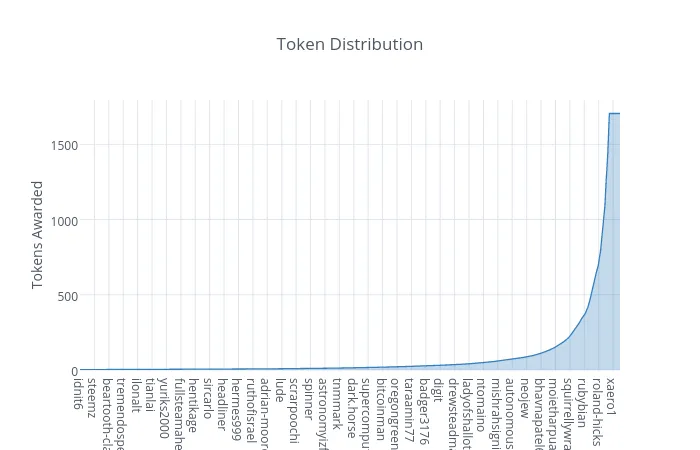A recent phenomena emerged, where new projects sell tokens within seconds of a crowdsale launch - and most of those tokens end up in hands of a few whales.
There is nothing inherently wrong with a couple of strong hands holding onto a large stake, however a narrow distribution might not be optimal for a project where the token serves as utility, or life blood if you will, of the network.
A hypothetical example of such network would be a platform for content creators, where the token is used as a social currency, as well as a mean to pay for things like storage. A good initial distribution would help with bootstrapping user adoption, increase potential monetary velocity and hopefully accelerate growth.
This post proposes token giveaway as a potential vehicle for widening of the initial token distribution, and explores some synergies in doing so.
Without a doubt, one of the most valuable assets Steem has is the community. If we are to give tokens away, we should gift them to you.
Who gets the tokens?
We would like to reach out as many people as possible, while avoiding spammers and inactive users. We also need to be mindful of the wealth inequality. It is hard to distribute the token fairly, as we need to rely on quantifiable metrics. The simplest proposal is to use Steem Power holdings as a proxy.
First, we need to set some constraints, on which users to exclude from the distribution.
Having a min threshold eliminates bot-created accounts, and accounts that haven't contributed to Steem in a meaningful way (either trough posting or as stakeholders). It also dis-incentivizes spammers from creating more accounts, and causing further damage to Steem's account creation faucet. As a bonus, it might also have some positive market pressure, when people buy some Steem and power it up to reach the min threshold.
We should also impose an upper cap on SP > Token conversions. If we don't do this, the whales will end up with most of the tokens, which defeats the purpose of the giveaway.
And lastly, we should exclude all accounts that haven't been active in the past few months.
Example:
| SP | $ value | |
|---|---|---|
| Min | 100 | $200 |
| Max | 50k | $50,000 |
This yields a distribution that includes nearly 10,000 Steemians.

You can play with the chart interactively here. The output data is also available on GitHub.
Multiple Snapshots
One improvement over the existing model, is to have multiple snapshot events, and then take aggregate (avg) results. For example, we could have 3 snapshots taken, one in the past, and 2 in the future (at unannounced dates).
By doing so, we would expand the distribution to users that join in the future, as well as incentivize people to hold Steem Power long term.
Feedback Welcome
Does this model make sense?
How can we improve it?
Do you have any ideas for alternate models?